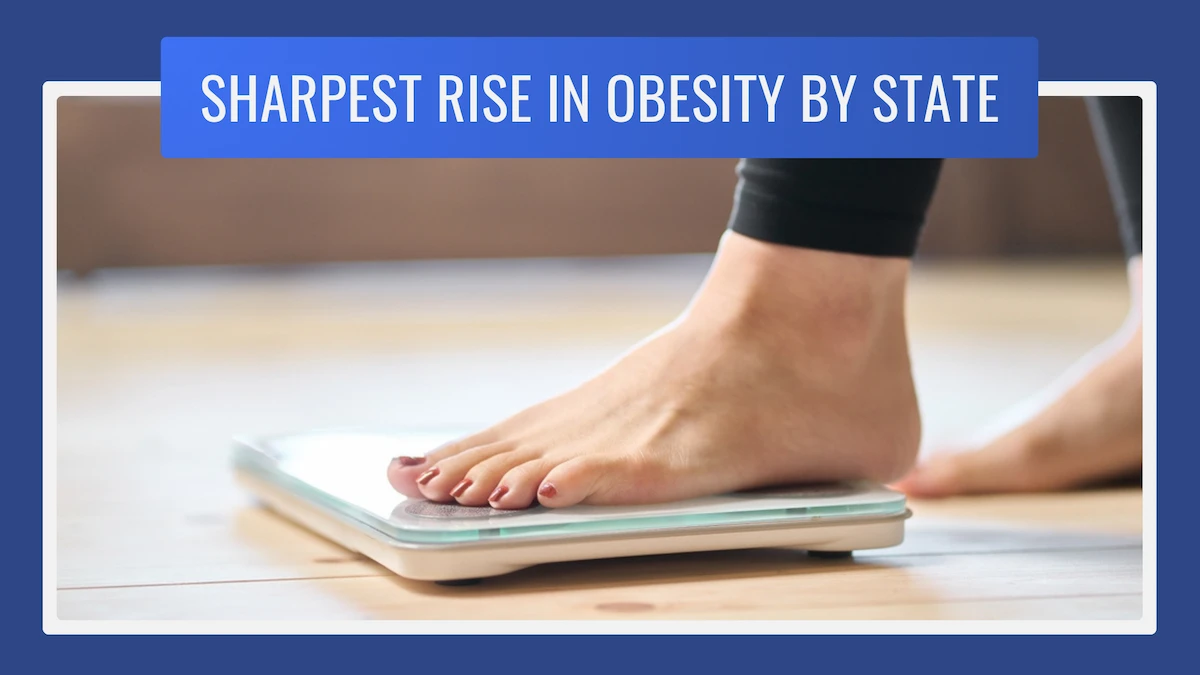Understanding Menopause and Weight Dynamics
Menopause is defined retrospectively after you have not had a menstrual cycle for twelve consecutive months. Perimenopause is the transitional phase leading up to menopause. Shifts in estrogen and progesterone levels cause many of the symptoms associated with perimenopause, including changes in body weight and body composition.
The Prevalence of Weight Loss During Menopause
The percentage of women losing weight during menopause is not clearly defined in the literature. Weight gain is much more common.1 Over 43% of women transitioning through menopause have obesity. During the menopausal transition, women gain an average of one pound per year. About 20% of women gain 10 pounds or more during this period.2

Hormonal Influence on Weight
Weight loss during menopause is less common than weight redistribution. Hormone changes during menopause contribute to an increase in fat mass and a decrease in lean muscle mass. If enough lean body mass is lost, total body weight will decrease, even as body fat increases.1
When estrogen levels decrease and androgen levels remain the same, women will notice a change in body composition. Adipose (fat) tissue is preferentially stored in the abdomen and around body organs instead of the hips and thighs. Increased abdominal and organ fat are risk factors for heart disease, type 2 diabetes, and metabolic syndrome.
The hormonal fluctuations starting during perimenopause and continuing through menopause can indirectly impact dietary habits. In one study, researchers found that energy intake and carbohydrate intake decreased significantly as women passed through menopause. However, the desire to eat, hunger, and prospective food consumption increased through and after the menopause transition. Fullness between meals also decreased across the menopause transition.
These results suggest that the physiologic and hormonal changes that occur during menopause impact eating behaviors and appetite regulation.3 If these results are supported in other studies, weight changes during menopause may be more closely related to activity level than food consumption.
Can Menopause Cause Weight Loss: Potential Causes
Hormonal changes can affect the body in ways that may reduce food intake during menopause. These include:
Digestive Issues
Scientific research suggests a link between hormone fluctuations and gastrointestinal problems, with many women reporting bloating, gas, and changes in bowel habits during menopause.4
Lower estrogen levels can slow the release of stomach contents into the intestines and increase acid production. Increased acidity can cause heartburn and gastroesophageal reflux disease.5 These symptoms could potentially lead to reduced food intake, contributing to weight loss.
Menopause can also change the gut microbiome, which can cause bloating, changes in energy use, and changes in bowel habits.

Physiologic Changes
The physical and mental changes occurring during menopause can lead to hot flashes, sleep disturbances, and a depressed mood, which can suppress appetite and contribute to weight loss.6
Sleep problems and depression are twice as common in women as in men, especially during menses and menopause, when sex hormone levels fluctuate.
While a link between changes in estrogen levels and sleep disturbances is clear, research on a link between sex hormone levels and depression is not conclusive.7
Loss of Muscle Mass
A decrease in estrogen levels during menopause can affect muscle size and function, leading to a loss of muscle mass and strength. According to one study, women in late perimenopause and after menopause had an average muscle mass that was 10% lower than women in early perimenopause.8
A loss in muscle mass, with no change in fat mass, can cause an overall decrease in body weight.
Altered Taste and Oral Sensations
The hormonal changes during menopause can also affect oral sensations and taste perception. Changes in taste and the onset of unique mouth sensations like burning or tingling could decrease appetite, contributing to weight loss.
Medications
Some medications have weight loss as a side effect, especially those used to treat type 2 diabetes.

When to Seek Medical Advice
Sudden or unexplained weight loss should always warrant a consultation with a healthcare provider. Chronic diseases and medication side effects may impact appetite and cause weight loss. Since it is more common to experience weight gain around menopause, if you notice significant weight loss and it is not due to a reduced-calorie diet and exercise plan, see your doctor.
Conclusion
Menopause is a phase of significant hormonal shifts that can impact a woman’s body weight. While weight gain is more commonly associated with this phase, weight loss can also occur. If you have concerns about menopause-related weight gain, talk to a treatment specialist at Invigor Medical about weight-management plans. Medications such as semaglutide can lead to significant weight loss and improve overall cardiovascular health.
Frequently Asked Questions
Can you lose weight during menopause?
Yes, while metabolism slows, it is certainly possible to lose weight during menopause. Since menopause can cause a loss in muscle mass, incorporate strength-training sessions into your routine.
Does menopause weight gain ever stop?
Yes, menopause-associated weight gain typically stabilizes within the first five years after menopause.
What is weight redistribution during menopause?
Decreased estrogen production and stable androgen levels cause an increase in abdominal and organ fat. Premenopausal women typically carry excess weight in their hips and thighs. After menopause, more excess body weight is stored in the abdomen.
Is weight loss during menopause normal?
Weight gain during menopause is much more common than weight loss. If you experience significant weight loss and it is unintentional, see your doctor for an evaluation.












